四川省攀枝花市2025届高三第三次统一考试英语
2025-08-23
0
0
45.36KB
13 页
10玖币
侵权投诉
攀枝花市 2025 届高三第三次统一考试
英 语
试卷共 10 页。满分 150 分。考试时间 120 分钟。
注意事项:
1.答卷前,考生务必将自己的姓名、准考证号填写在答题卡上。
2.回答选择题时,选出每小题答案后,用铅笔将答题卡上对应题目的答案标号涂黑。如需改动,
用橡皮擦干净后,再选涂其它答案标号。回答非选择题时,将答案写在答题卡上。写在本试卷上无效。
3. 考试结束后,将本试卷和答题卡一并交回。
第一部分 听力(共两节,满分 30 分)
做题时,先将答案标在试卷上。录音内容结束后,你将有两分钟的时间将试卷上的答案转涂到答题
卡上。
第一节(共 5小题;每小题 1.5 分,满分 7.5 分)
听下面 5段对话。每段对话后有一个小题,从试题所给的 A、B、C三个选项中选出最佳选项,并标
在试卷的相应位置。听完每段对话后,你都有 10 秒钟的时间来回答有关小题和阅读下一小题。每段对话
仅读一遍。
例:How much is the shirt?
A. £19.15. B. £9.18. C. £9.15.
答案是 C。
1. Where does the conversation probably take place?
A. In a classroom. B. In a bookstore. C. In a hospital.
2. What will the speakers do next?
A. Have a cup of coffee. B. Wait for somebody else. C. Move on to the next item.
3. How does the woman probably feel now?
A. Regretful. B. Confused. C. Worried.
4. At what time will the woman have the special meeting?
A. 11:30. B. 11:45. C. 12:00.
5. What are the speakers talking about?
A. A neighbor. B. A classmate. C. A workmate.
第二节 (共 15 小题;每小题 1.5 分,满分 22.5 分)
听下面 5段对话或独白。每段对话或独白后有几个小题,从题中所给的 A、B、C三个选项中选出最
佳选项,并标在试卷的相应位置。听每段对话或独白前,你将有时间阅读各个小题,每小题 5秒钟;听
完后,各小题将给出 5秒钟的作答时间。每段对话或独白读两遍。
听第 6段材料,回答第 6、7题。
6. Where does the conversation probably take place?
A. In a cleaner’s. B. In a coffee shop. C. In a clothes store.
7. What will the man do next?
A. Attend a party. B. Meet some friends. C. Buy a birthday gift.
听第 7段材料,回答第 8至10 题。
8. Where was Annie probably born?
A. In Italy. B. In France. C. In Portugal.
9. What is difficult for Annie to learn about Spanish?
A. Its writing. B. Its grammar. C. Its pronunciation.
10. What is Mr. Johnson’s opinion of Annie?
A. She is falling behind. B. She is performing average. C. She is doing well.
听第 8段材料,回答第 11 至13 题。
11. Why did the man travel to England?
A. For further education. B. For an exchange project. C. For a sports competition.
12. What sport is the man taking Josh to see in China?
A. Football. B. Basketball. C. Table tennis.
13. How does the man mainly feel during his trip?
A. Excited. B. Lonely. C. Tired.
听第 9段材料,回答第 14 至16 题。
14. What are the speakers doing?
A. Finishing office work. B. Borrowing a book. C. Enjoying a vacation.
15. What is the book mainly about?
A. Career improvement. B. College education. C. Financial planning.
16. Why does the man want to read the book?
A. To master study skills.
B. To improve his life quality.
C. To get along well with his co-workers.
听第 10 段材料,回答第 17 至20 题。
17. What kind of system will the governments bring in?
A. A vehicle trading system.
B. A car campaigning system.
C. A petrol car purchase system.
18. When will the plastic bottles be forbidden?
A. By 2025. B. By 2030. C. By 2040.
19. What does the speaker suggest as an alternative to current plastic bottles?
A. Metal cans. B. Glass bottles. C. Paper cups.
20. What is the main idea of the talk?
A. Dangers of global warming.
B. New rules about electric cars.
C. Urgent actions against pollution.
第二部分 阅读(共两节,满分 50 分)
第一节(共 15 小题:每小题 2. 5 分,满分 37. 5 分)
阅读下列短文,从每题所给的 A、B、C、D四个选项中选出最佳选项。
A
Digital Discovery Workshops
PacSci’s Digital Discovery Workshops bring unique science experiences to you on your own schedule.
PacSci educators join you live from our Digital Learning Studio to engage learners in STEM concepts through
real-time demonstrations, sample close-ups, and interactive software and videos.
Who Are these for?
Digital Discovery Workshops are designed for Pre K-12 graders joining from classrooms, after-school
settings, library programs, or other community groups.
Costs & Booking
● 1-99 participants: $250
● 100-199 participants: $350
● 200-299 participants: $450
● 300+ participants: $550
Qualified low-income schools may receive up to 100% off Digital Discovery Workshops rates. Programs
should be booked at least 2 weeks in advance. We book on a rolling calendar year so we can schedule as far in
advance as you like!
How They Work
● PacSci educators send you a private Zoom link, or join a virtual platform of your choice.
● PacSci educators guide participants through demonstrations and activities as they facilitate active student
participation.
● Each program includes an optional follow-along worksheet, as well as connected extension activities,
reading lists, and videos to use before and after the program.
What You Will Need
● One shared device with a large screen and speakers or individual devices
● Internet connection
● Access to your selected virtual platform, such as Zoom
● A webcam and microphone on participant device(s)
● An adult must be present to provide aid for the participant
21. How much should a group of 310 participants pay for a Digital Discovery Workshop?
A. $250. B. $350. C. $450. D. $550.
22. How do participants learn in the Digital Discovery Workshops?
A. Through watching mailed videos. B. Through live educator guidance.
C. By reading scientific books. D. By participating in community activities.
23. Who is required to accompany and help the participants besides the PacSci educators?
A. A pre K-12 grader. B. A low-income student.
C. An adult. D. An active junior student.
B
Growing up, I disliked writing. It was the last thing I wanted to do and it’s one reason why I pursued science
in the first place. In high school, I hated writing essays. For hours, I stared at blank pages, trying to turn my
disordered thoughts into fluent sentences and I often received papers marked with lots of corrections. I began to
wonder if I was simply not cut out for writing. And that was OK. I didn’t have to be good at everything.
I focused instead on my love for math and science. I took comfort there, knowing objective truth could be
found if I searched methodically. In college, I studied engineering and joined a research lab to gain hands-on
experience. My first project was to improve the efficiency of a magnetic component. Despite initial disappointing
results, I continued through many designs. Eventually, we developed a design that halved energy losses. I was
delighted — until my professor told me to write that research paper.
I knew that if I wanted to become a researcher, I would need to spend time penning papers. But I was scared
of failing. In a panic, I asked a graduate student in my lab for help. We set a goal for the paper, and I carefully
wrote an outline. But when I asked him for feedback ( 反馈), I soon found the paper covered in red marks. He
explained that red didn’t mean I was a bad writer. Writing isn’t a one-and-done thing. It requires revising your
work, often several times. Suddenly it occurred to me, “Hadn’t I done the same thing when I was searching for an
摘要:
展开>>
收起<<
攀枝花市2025届高三第三次统一考试英语试卷共10页。满分150分。考试时间120分钟。注意事项:1.答卷前,考生务必将自己的姓名、准考证号填写在答题卡上。2.回答选择题时,选出每小题答案后,用铅笔将答题卡上对应题目的答案标号涂黑。如需改动,用橡皮擦干净后,再选涂其它答案标号。回答非选择题时,将答案写在答题卡上。写在本试卷上无效。3.考试结束后,将本试卷和答题卡一并交回。第一部分听力(共两节,满分30分)做题时,先将答案标在试卷上。录音内容结束后,你将有两分钟的时间将试卷上的答案转涂到答题卡上。第一节(共5小题;每小题1.5分,满分7.5分)听下面5段对话。每段对话后有一个小题,从试题所给的A...
声明:本站为文档C2C交易模式,即用户上传的文档直接被用户下载,本站只是中间服务平台,本站所有文档下载所得的收益归上传人(含作者)所有。玖贝云文库仅提供信息存储空间,仅对用户上传内容的表现方式做保护处理,对上载内容本身不做任何修改或编辑。若文档所含内容侵犯了您的版权或隐私,请立即通知玖贝云文库,我们立即给予删除!
相关推荐
-
.net笔试题选择题集VIP免费
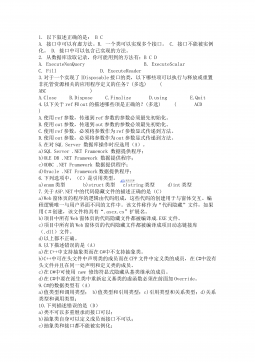
 2024-11-14 29
2024-11-14 29 -
产品需求文档 - 适合敏捷迭代开发的PRD文档应该怎么写VIP免费
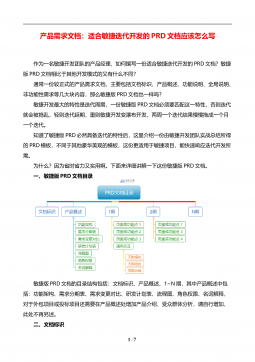
 2024-11-23 5
2024-11-23 5 -
产品需求文档 - 面向产品需求的验证管理VIP免费
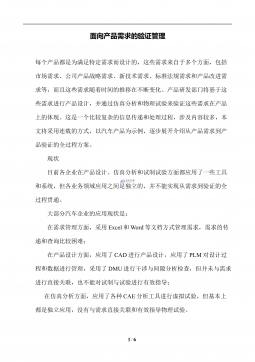
 2024-11-23 4
2024-11-23 4 -
产品需求文档 - 没有标准,只有沟通VIP免费
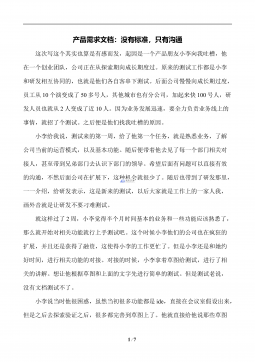
 2024-11-23 4
2024-11-23 4 -
产品需求文档 - 产品需求应该怎么写VIP免费
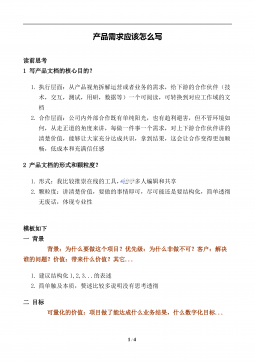
 2024-11-23 5
2024-11-23 5 -
产品需求文档 - 产品需求文档 PRD模板VIP免费

 2024-11-23 33
2024-11-23 33 -
产品需求文档 - 产品需求核心组件分析VIP免费
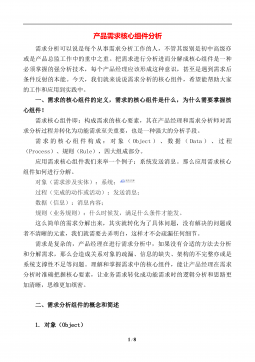
 2024-11-23 45
2024-11-23 45 -
2024版.新高考版.高考总复习.数学.5·3A版1_1集合VIP免费
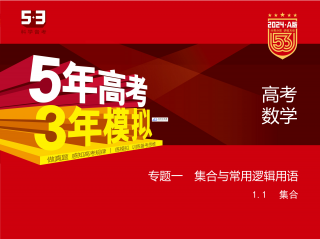
 2024-11-23 29
2024-11-23 29 -
2024版.新高考版.高考总复习.数学.5·3A版1_1集合(分层集训)VIP免费
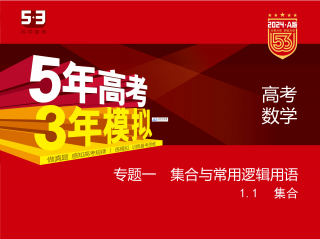
 2024-11-23 16
2024-11-23 16 -
产品需求文档 - 产品技能树之需求分析(一)VIP免费
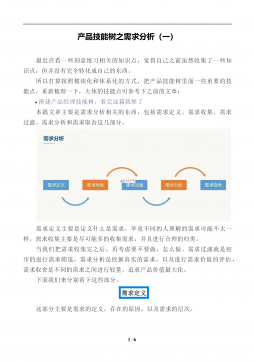
 2024-11-23 9
2024-11-23 9
分类:中学教育
价格:10玖币
属性:13 页
大小:45.36KB
格式:DOCX
时间:2025-08-23




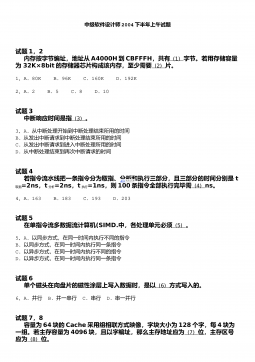
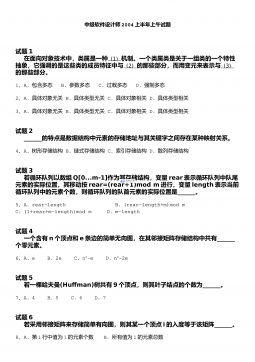
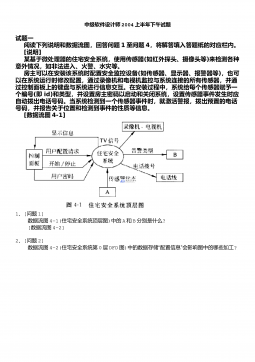
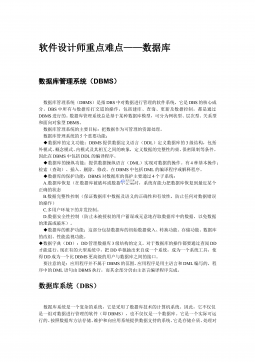
 渝公网安备50010702506394
渝公网安备50010702506394
